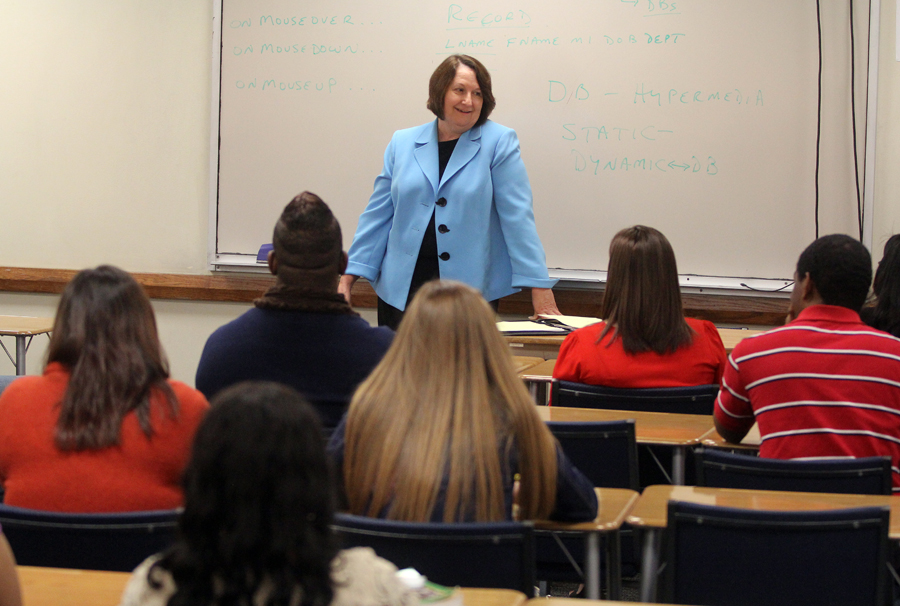House Bill 1939 to increase social worker availability in Washington State
The bill’s primary sponsor, Rep. Tina Orwall (D), worked in the public mental health system for 20 years and previously passed the 988-suicide lifeline.
CORRECTION: A previous version of this article was published erroneously with the text of another article in its place. This issue has now been corrected as of 3/26/24.
House Bill 1939 sits on Gov. Jay Inslee’s desk, awaiting his signature which would allow social workers in other states to enter private practice under a compact agreement. Under a multistate license, social workers could migrate to Washington State or provide social services through online telehealth communication.
“You don’t have to get your licensure where you graduate from, however, all of our resources that we give to our students in terms of licensure have historically been geared towards Washington state,” said Dr. Christopher Barrans, director of field education and assistant teaching professor of the School of Social Work and Criminal Justice at UWT.
In 2023, Representative Orwall of District 33 introduced and passed House Bill 1134, the 988 Suicide and Crisis Lifeline. It created a national network of local crisis centers that supports people in distress by funding local crisis teams and crisis response training.
Rep. Orwall is the primary sponsor of House Bill 1939, which expands career opportunities for out-of-state social workers through the Social Work Licensure Compact.
If the bill is signed into law by the Governor, it could open new opportunities for graduate students of UWT’s social work program, especially military families, according to Dr. Barrans.
The Social Work Licensure Compact would permit licensed social workers in participating states to obtain a multistate license, without having to go through the extensive licensure requirements more than once. The bill also includes a provision for military families with social workers to ensure they can find employment within the participating state they relocate to.
Individual state laws on licensure will still apply in these cases.
“We’re close to JBLM and so we have quite a few folks in our program that are connected to the military, and I think that’s where this idea originated from,” said Dr. Barran.

Legislation to introduce the compact was first enacted in South Dakota, with pending legislation following in 28 more states including Washington and Oregon, according to the Social Work Licensure Compact map.
In Washington State, social workers make up 16,960 people out of a state population of 3,405,470 employed people, according to the Bureau of Labor Statistics.
Washington State’s population has risen to 7,951,150 people, according to the Office of Financial Management. While more than half of the population remains unemployed, access to health insurance coverage depends highly on employment status.
“I think the overall intention here is to increase accessibility to mental healthcare,” said Dr. Cassandra Nichols, psychologist and director of psychological and wellness services at UWT.
House Bill 1939 comes at a time of crisis and great demand, when affordable and immediate access to healthcare services and social work is known to be difficult to find.
“I think that there is a shortage everywhere,” said Dr. Nichols. “People are not going into primary care, we have a primary care shortage, we have a pediatric shortage, we have a psychiatric shortage.”
In 2022, 46% of U.S. healthcare workers reported feeling burnout often or very often. In 2018, reports of burnout amounted to 32%, according to the Center for Disease Control and Prevention.
For Dr. Nichols and PAWS, she takes care in making sure her clinicians avoid burnout.
At UWT, students have immediate access to virtual healthcare and psychiatric appointments and do not have to pay for after-hours crisis services, mental health services or virtual healthcare, according to Dr. Nichols.
To see your options for health and psychological wellness services at UWT, visit the Psychological and Wellness Services website. For immediate crisis response on campus or after-hours assistance, visit UWT’s 24/7 Crisis Resources page.

Featured photo: “Social Work Students’ Accreditation Visit 3.26.13” by Southern Arkansas University is licensed under CC BY 2.0. Photo by CC- University of the Fraser Valley.






